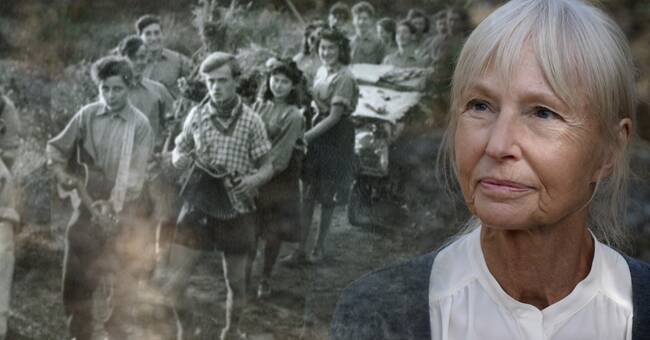People in exile is a recurring theme in Carola Hansson's books.
Her twelfth novel, Memory Threads, is no exception.
The book, which is based on a true story, describes how 60 Jewish youths traveled from Germany to Sweden at the beginning of World War II.
They move into a mansion in Falun which they transform into a traditional kibbutz.
- There they live completely isolated in a foreign culture.
They must not have any property of their own and all chores are performed jointly, says Carola Hansson to Kulturnyheterna.
Forgotten war history
The young people, all between 14 and 18 years old, struggle to become self-sufficient.
They take jobs on nearby farms, in sewing studios and as running boys inside Falun.
The goal is to one day move on and live on kibbutz in Palestine, but the war means that the departure is constantly postponed.
For eight years, between 1939 and 1947, they lived on the farm, before the collective on the kibbutz dissolved.
Since then, the history of the Jewish youth has largely fallen into oblivion.
It was only eleven years ago, with the documentary Kibbutzen in Falun (2009), that the memory was brought to life again.
- I met a man who saw the film in Falun.
He told me that the movie theater was full of falubors, and that almost no one knew that there had been a kibbutz in their hometown.
Double attention
Carola Hansson was seized by the fate of the Jewish youth, but was also reminded of the uncomfortable silence that characterized her childhood.
- In the 50's there was still the anti-Semitic background noise, as it is called.
They did not talk about the war and not about the Jewish, it was taboo.
I think that has survived for a long time, says Carola Hansson.
This autumn, the story of the kibbutz will also be noticed by journalist Kaj Schueler.
In his new book "A kibbutz in Falun" he writes about his mother, who was one of the young people who came to Sweden to live on the mansion.
- We were both far advanced in our work when we heard about each other.
Then we agreed that our ways of approaching the subject were so different that the books should be able to complement each other.

